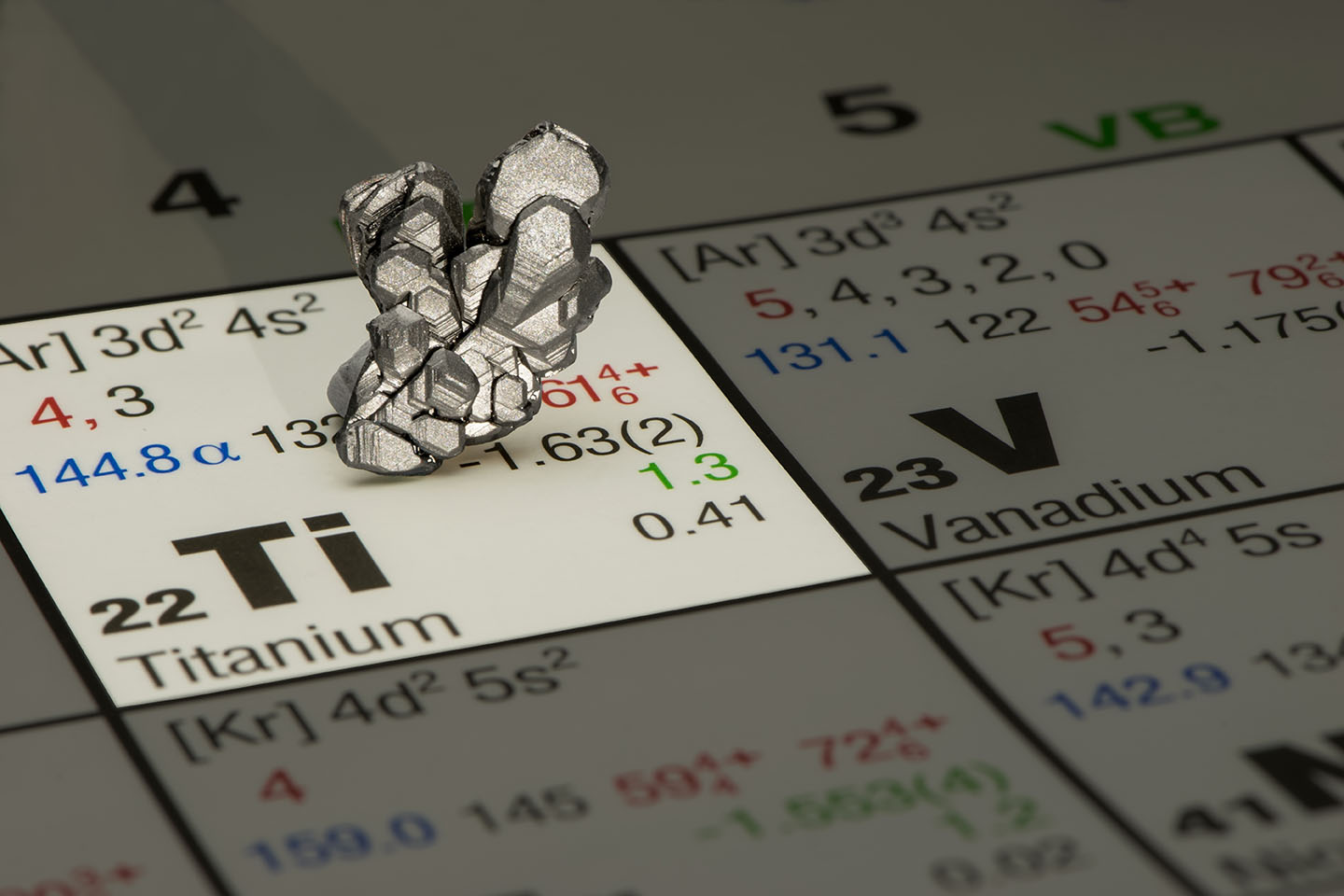

Titanium is a chemical element with the symbol Ti and atomic number 22. It is a transition metal that is strong, lightweight, and corrosion-resistant.
Titanium is the ninth most abundant element in the Earth's crust, but it is not found in its pure form. It is found in combination with other elements, such as iron and oxygen.
Titanium is extracted from its ores by a process called smelting. The smelting process involves heating the ore to a high temperature and then adding a reducing agent, such as carbon.
Titanium has a number of properties that make it useful in a variety of applications. It is strong, lightweight, corrosion-resistant, and biocompatible.
Titanium is used in a wide variety of applications, including:
The diver's mask was made of titanium to withstand the pressure of the water.

Noun:
a chemical element with the symbol Ti and atomic number 22. It is a silvery-gray, strong, light metal that is found combined in ores such as ilmenite and rutile.
Adjective:
relating to or containing titanium.
The word "titanium" comes from the Latin word "Titan", which refers to the Titans, a race of giant gods in Greek mythology.
The first recorded use of the word "titanium" in English was in 1795.
The word "titanium" is a Modern Latin word, which means that it was created by scientists. It is derived from the Latin word "Titan".
What is titanium?
Question:
Discuss the properties and applications of titanium in modern technology. Explain how its unique characteristics make it suitable for specific uses, and provide an example of a technological application where titanium is essential.
Answer:
Titanium, a remarkable metal with atomic number 22, possesses a combination of properties that make it highly valuable in various technological applications. It is known for its exceptional strength-to-weight ratio, corrosion resistance, and biocompatibility.
One of titanium's key applications is in aerospace engineering. Its lightweight nature and robustness make it a preferred material for aircraft components such as airframes, engine parts, and landing gears. Its resistance to corrosion is particularly advantageous in the challenging conditions of aviation, where exposure to moisture and extreme temperatures is common.
An example of a technological application where titanium plays a vital role is in the manufacturing of medical implants, such as joint replacements and dental implants. Titanium's biocompatibility ensures that these implants integrate well with the human body, minimizing the risk of adverse reactions. Moreover, its strength and resistance to corrosion provide long-lasting support for patients.
Titanium's versatility and remarkable properties highlight its significance in modern technology, ranging from aerospace to medical advancements. Its unique combination of attributes enables the development of innovative and reliable solutions that enhance various aspects of our lives, showcasing the crucial role of materials science in shaping the future of technology and engineering.
Address
Developing Experts Limited
Exchange Street Buildings
35-37 Exchange Street
Norwich
NR2 1DP
UK
Phone
01603 273515
Email
hello@developingexperts.com
Copyright 2025 Developing Experts, All rights reserved.